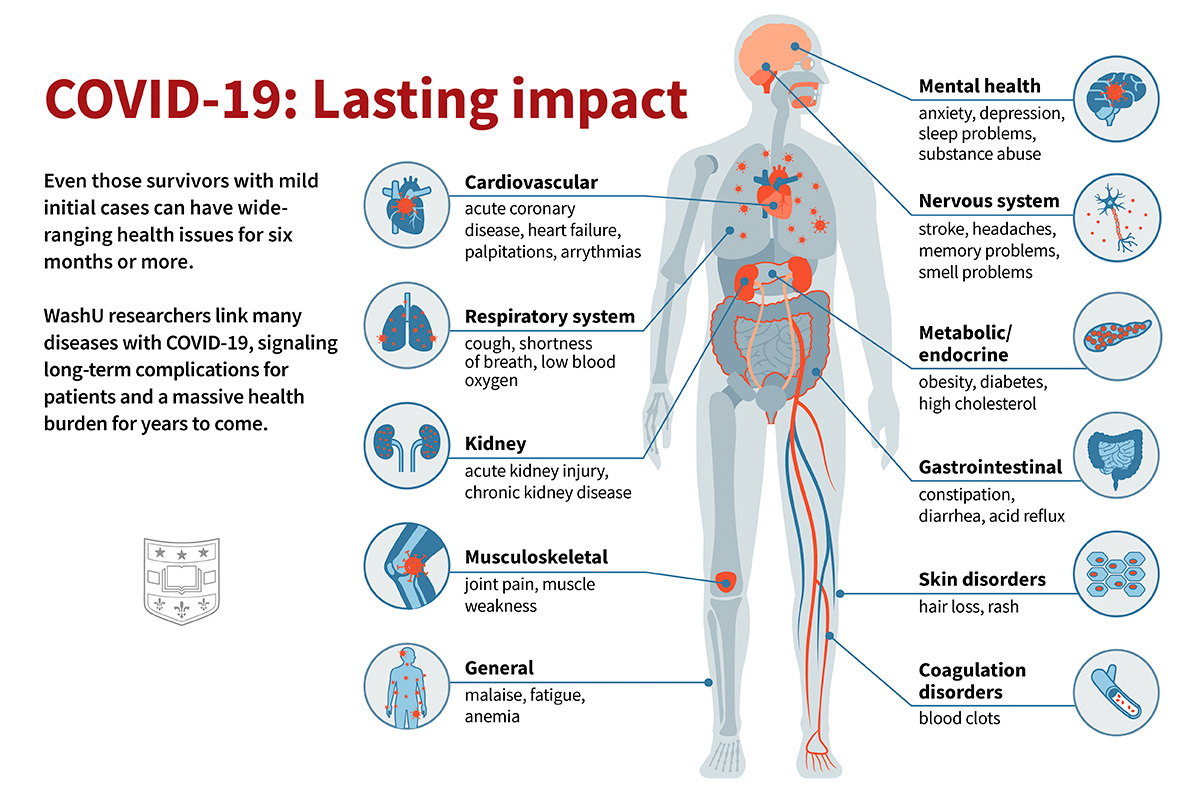
Long Covid, study in Neurogastroenterology and Motility: main symptoms are diarrhoea and asthenia
The study on Long Covid symptoms was published in the prestigious journal Neurogastroenterology and Motility. Policlinico di Milano contributed to the study
Once the most acute phase of the health emergency has passed, attention is once again focused on the effects of Sars-CoV-2 even in the long term: the so-called Long Covid
In fact, there are numerous cases of ‘long covid’, with people continuing to present various symptoms once the infection has ended and the acute phase has resolved.
Already in the aftermath of the first wave, the multisystem nature of Covid-19 was established. It attacks not only the lungs, but also several organs, including the nervous system, liver, heart, pancreas, joints and skin.
The Policlinico di Milano, already a leader in the field of gastroenterology, has contributed to this line of research by investigating the long-term intestinal and extraintestinal consequences of Covid-19.
The authors of the study, published in the prestigious journal “Neurogastroenterology and Motility” and among the few Italian studies selected as an oral communication at the largest gastroenterological congress in the United States, the Digestive Disease Week, are Maurizio Vecchi, professor and director of the School of Specialisation in Diseases of the Digestive System – University of Milan, and Guido Basilisco of the Operative Unit of Gastroenterology and Endoscopy, Fondazione IRCCS Ca’ Granda Ospedale Maggiore Policlinico of Milan.
The study, on the one hand, reassures Covid-19 patients that the long-term gastrointestinal effects are mild; on the other, it highlights the possibility that both intestinal and extraintestinal manifestations may persist even months later.
THE MILAN POLYCLINIC STUDY ON LONG COVID SYMPTOMS
As early as 2020, some findings in the literature indicated that Sars-CoV-2 could also affect the gastrointestinal tract, with at least 30% of patients having diarrhoea or gastroenterological symptoms in the acute phase of the disease.
Less well known was the time course of these symptoms, which is important given that often, after bacterial or viral infections, some of these disorders tend to become chronic, even for years, sometimes accompanied by extraintestinal symptoms (backache, headache, weakness) not explained by a specific organic alteration, the latter being defined as ‘somatoform’.
This trend characterises certain functional syndromes such as irritable bowel syndrome or dyspepsia, known as ‘post-infectious’.
We therefore analysed, after a five-month interval, patients admitted to our hospital for acute Covid-19 infection in order to understand whether the gastrointestinal symptoms that characterise functional gastrointestinal diseases, such as irritable bowel, and somatoform symptoms, such as fatigue/asthenia, may be present months after infection,” explains Basilisco. “We studied 164 patients 5 months after acute Covid-19 infection.
The results were compared with those of healthy Covid-19 negative subjects.
The data show that ‘gastroenterological symptoms are present at a distance from the infection, although in a very mild form; the most frequent symptom is diarrhoea.
Among extraintestinal symptoms, asthenia is much more frequent, reaching values of 40% among Covid-19-infected subjects.
These results suggest, in line with the most recent literature, that both the symptoms characterising functional gastrointestinal diseases and somatoform symptoms may have a common biological origin’.
Professor Vecchi adds: ‘Our research investigated a topic of considerable interest, namely the long-term follow-up of patients with an acute Covid-19 infection who in 30-40% of cases presented with gastrointestinal problems, mainly diarrhoea.
Other studies had also shown cases of pancreatitis, which is not always clinically evident, but can be detected by the alteration of enzymes characteristic of the pancreas.
Finally, another strong piece of evidence for the relationship between the virus and the digestive system is the fact that in acute infection there is significant faecal clearance of Sars-CoV-2, probably after the initial phase, during which the virus is localised in the upper airways, before it reaches other organs and gastrointestinal tissues’.
Read Also:
Long Covid, Washington University Study Highlights Consequences For Covid-19 Survivors
Paediatrics / Dyspnoea, Cough And Headache: Some Of The Long Covid Signs In Children


